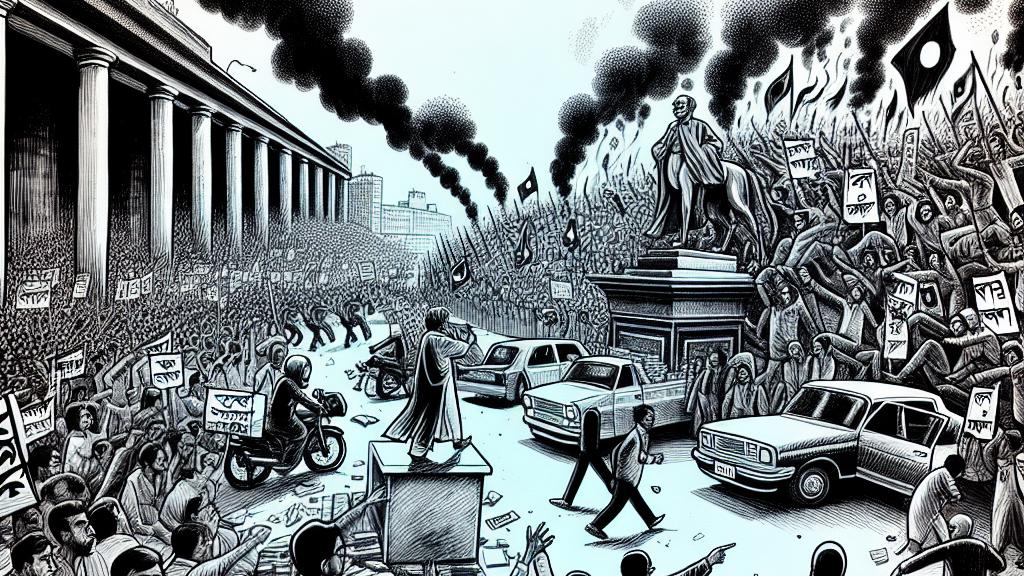Bangladesh in Turmoil: Muhammad Yunus Steps Up as Interim Leader Amid Chaos!
Overview
- Nobel laureate Muhammad Yunus appointed as head of interim government during a national crisis.
- Sheikh Hasina resigns and flees to India amidst escalating protests and civil unrest.
- Calls for peace, unity, and democratic reforms dominate the political landscape.

Context of the Crisis
Bangladesh is currently experiencing one of its most tumultuous political crises, marked by the appointment of Muhammad Yunus, a renowned Nobel laureate, as the head of an interim government. This shift follows the dramatic resignation of Prime Minister Sheikh Hasina, who fled to India amid fierce protests sparked by widespread discontent over government job allocation practices. These protests, initially focused on issues of job fairness for youth, quickly evolved into a broader uprising against Hasina's over 15-year rule. With violence erupting across major cities and significant casualties reported, the protests highlight deep societal fractures and frustrations that have long been brewing among the populace, particularly the youth who feel disenfranchised.
Diverse Voices Amidst Unrest
As Yunus prepares to assume his role, he appeals for calm and unity, emphasizing the need for a peaceful transition to stabilize the nation. Recognized for his pioneering work in microfinance, Yunus is seen by many as a stabilizing figure who embodies hope for a brighter political future. Meanwhile, opposition leaders like Khaleda Zia have called for healing and cooperation, urging stakeholders to reject revenge and focus on a collective effort toward rebuilding. However, the aftermath of the protests has left a scar on society, with memories of violence and loss making it clear that many citizens are demanding not just change in leadership, but a complete overhaul of the political system to ensure fairness and accountability moving forward.
Navigating Challenges Ahead
The immediate tasks facing Yunus's interim government are significant, as the nation seeks stability and consensus amidst ongoing tensions. He must engage various political factions, including the Bangladesh Nationalist Party (BNP), which has been active in advocating for immediate elections and comprehensive political reforms. Additionally, addressing the concerns of the youth, who were central to the protests, is crucial to restoring public faith in the government. The international community is watching closely; with countries like the United States expressing willingness to support the interim government, Yunus has an opportunity to reshape Bangladesh's political identity. This moment represents a critical crossroads for Bangladesh, with the potential to transition from a history of authoritarian rule towards a more democratic and inclusive governance model based on the hopes and demands of its citizens.

Loading...